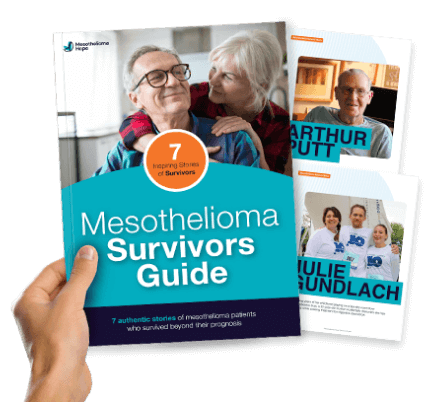Mesothelioma Survivor Stories
While cancer researchers continue to work toward a cure for mesothelioma, personalized and cutting-edge cancer treatments are helping patients like you achieve long-term survival.
These mesothelioma survivors have unique backgrounds, diagnoses, and treatment plans but are all still living life to the fullest today.
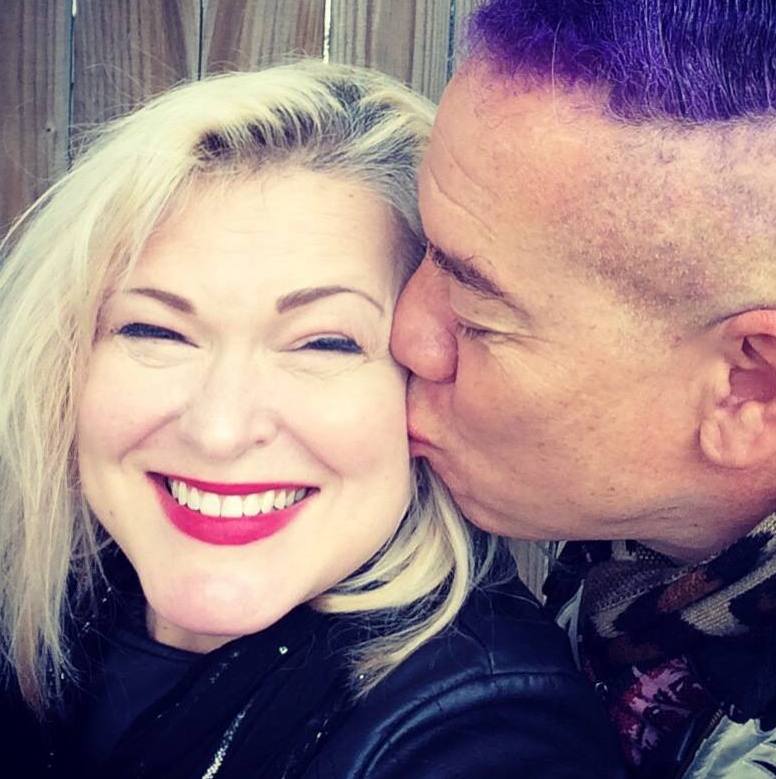
Alexis Kidd
- Diagnosis: Peritoneal mesothelioma
- Year of Diagnosis: 2007
- Treatment: Surgery with heated chemotherapy
Alexis Kidd was only 37 years old when she learned she had peritoneal mesothelioma during a routine follow-up appointment for gallbladder surgery. She was told she had 6 months to 2 years at most.
Thankfully, Alexis found a skilled surgical team at MD Anderson Cancer Center in Houston and underwent cytoreductive surgery with heated intraperitoneal chemotherapy (HIPEC).
Alexis finds strength in a support system that includes her husband, friends, and fellow mesothelioma survivors.
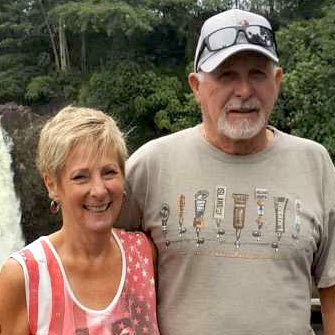
John Stahl
- Diagnosis: Stage 4 pleural mesothelioma
- Year of Diagnosis: 2019
- Treatment: Chemotherapy
Just as John Stahl and his wife Dee were preparing to enjoy their golden years in Nevada, he was diagnosed with stage 4 pleural mesothelioma.
He traced his cancer back to the construction industry, where he spent four decades working with drywall, gaskets, and other asbestos-containing products.
Since John’s cancer was too advanced for surgery, his mesothelioma specialist recommended chemotherapy. Amazingly, he is now back to playing golf twice a week and driving through the scenic red-rock canyons of Nevada, Utah, and Arizona with Dee by his side.

Julie Gundlach
- Diagnosis: Peritoneal mesothelioma
- Year of Diagnosis: 2006
- Treatment: Surgery with heated chemotherapy
St. Louis native Julie Gundlach is a nationally recognized mesothelioma survivor who has been living with this cancer since she was 35 years old.
Just one year after her father died from asbestos-related lung cancer, Julie received her own diagnosis: malignant peritoneal mesothelioma. She was given 6-12 months to live.
She was determined to fight her disease so she could live to see her young daughter grow up. After multiple surgeries and chemotherapy, Julie’s mesothelioma is now stable, and she recently saw her daughter off to college.

Arthur Putt
- Diagnosis: Pleural mesothelioma
- Year of Diagnosis: 2018
- Treatment: Chemotherapy, immunotherapy, and alternative treatment
When Arthur “Art” Putt was diagnosed with pleural mesothelioma, his prognosis (disease outlook) was grim.
Standard treatments helped for a time, but Art’s doctors found they became less effective as his cancer spread. Art decided to incorporate alternative treatment in the form of an anti-inflammatory diet.
Twice a day, his wife Jan prepared a blend of asparagus, beetroot powder, cottage cheese, and various oils for him to take through a feeding tube. Art credits the mixture for helping him feel as healthy as he does today.
Get our Free Mesothelioma Survivors Guide to learn how other patients defied the odds.


Dr. Bonnie Snyder
- Diagnosis: Pleural mesothelioma
- Year of Diagnosis: 2022
- Treatment: Chemotherapy and alternative treatment
A trailblazer from an early age, Dr. Bonnie Snyder pursued her dream of becoming a veterinarian in an era when women faced significant barriers in the field.
When she was unexpectedly diagnosed with pleural mesothelioma, it drastically altered her active lifestyle with her husband on their ranch in Arizona.
The financial burden of mesothelioma treatment and the threat of losing their home led the Snyders to pursue legal compensation. With the support of our legal partners, they filed a lawsuit and received asbestos payouts that eased their financial stress, allowing Bonnie to continue her treatments and keep the ranch.


Jessica Blackford-Cleeton
- Diagnosis: Peritoneal mesothelioma
- Year of Diagnosis: 2015
- Treatment: Surgery and chemotherapy
Jessica Blackford-Cleeton’s battle with peritoneal mesothelioma began at the age of 32 after a year of severe stomach pain and getting misdiagnosed with less serious conditions.
She was correctly diagnosed through a biopsy that revealed hundreds of tumors throughout her abdomen. Jessica’s determination to advocate for herself allowed her to access life-saving treatments while preserving her ability to have children.
By filing a mesothelioma lawsuit, Jessica secured compensation that helped cover her medical expenses and provided relief during an incredibly challenging time.
Key Factors in Mesothelioma Survival
Every patient’s experience with mesothelioma is different. Your cancer stage, age, overall health, and response to treatment can all affect your life expectancy.
Learn more about the factors that influence mesothelioma survival.
Mesothelioma Stage at Time of Diagnosis
The earlier you get diagnosed, the more treatment options may be available.
In the later stages of mesothelioma, surgery is more difficult to perform because of how far the cancer has spread. In these cases, treatments like chemotherapy or immunotherapy can still help treat the cancer and keep it from getting worse.
Many patients with mesothelioma have lived longer than expected, even with advanced stages. For example, John Stahl, diagnosed with stage 4, is still alive today after getting chemotherapy.
Mesothelioma survival stories like John’s show that treatments are constantly improving and can offer hope to patients at any stage of the disease. With the right care, there’s always a chance for more time with your loved ones.
Response to Treatment
Your response to treatment can significantly influence how long you live with mesothelioma. If the cancer hasn’t spread far beyond your lungs or abdomen, you may be able to get specialized treatments like surgery, chemotherapy, or radiation to help manage the disease.
Immunotherapy is another treatment that’s helping many people live longer. It works by boosting the body’s ability to fight cancer and has become a game-changer for some patients.
Take the story of U.S. Army veteran Gene D’Alessandro, who was diagnosed with peritoneal mesothelioma in 2021. Initially, his general oncologist recommended only chemotherapy.
Unsatisfied, Gene’s daughter Karen found a mesothelioma specialist who added the immunotherapy drug Opdivo® to his care plan. The results were remarkable.


“Everything got better with Opdivo. I wish we had accessed this level of expertise from the start…that doctor saved my father’s life.”
Disease Management
Survivors work closely with their mesothelioma doctors through regular checkups to keep their condition under control.
This ongoing care, called disease management, helps catch any signs of the cancer coming back and allows doctors to adjust the patient’s treatment plan as needed.
It also allows mesothelioma survivors to share any concerns about symptoms, treatment-related side effects, or their overall recovery.
Clinical Trials
Mesothelioma clinical trials can also be a valuable option for survivors. These trials test new treatments like gene therapy and vaccines that could offer better results than standard options.
By joining a clinical trial, patients can access the latest treatments before they’re widely available.
In some cases, these innovative therapies can be lifesaving, depending on how the patient’s cancer responds to the treatment.
Diet and Nutrition
Proper diet and nutrition can give your body the energy it needs to undergo treatments and support your recovery afterward.
Many mesothelioma cancer centers have their own dietitians who work one-on-one with patients to create individualized meal plans.
These may include high-calorie options and protein-rich foods to help maintain muscle and promote cell repair.
If you’re not sure where to start, turn to our Free Mesothelioma Nutrition Guide. It’s packed with simple meal ideas and tips from our nurses to help you eat well and feel more like yourself during treatment.
Top 3 Tips for Living With Mesothelioma
No matter where you are in your mesothelioma journey, there are steps you can take to manage the cancer and make the most of each day. Many mesothelioma survivors have found ways to improve their quality of life, and you can too.
1. Find a Specialist
Many mesothelioma survivors have said that finding the right mesothelioma doctor was the most important decision they made.
A mesothelioma specialist can:
- Give you a second opinion to ensure you have the correct diagnosis
- Identify which treatments are best for your type and stage of mesothelioma
- See if you’re eligible for emerging therapies that could help you live longer
Our Patient Advocates can help you find a specialist who understands your diagnosis and can guide you toward the right treatment options. Get started with our Free Doctor Match.
2. Get Palliative Care
Mesothelioma symptoms and treatment side effects can bring physical challenges, but palliative care can help you feel better and make your day-to-day life easier.
Examples of palliative care include:
- Alternative treatments like yoga or acupuncture to reduce stress and improve well-being
- Paracentesis to drain excess fluid from the abdomen
- Prescription pain relief to help you stay comfortable
- Thoracentesis or PleurX catheters to manage pleural effusion (fluid in the lungs)
Your care team can help you explore these options and find what works best for you.
3. Seek Emotional Support
Developing a strong support system is key to maintaining a positive outlook and quality of life while battling mesothelioma. This might include seeing a licensed counselor, joining mesothelioma support groups to meet other patients and survivors, or talking to friends and family.
Don’t be afraid to ask for help. We can share emotional support resources to meet your personal needs and preferences.
Learn how other patients have navigated the medical, emotional, and financial aspects of living with mesothelioma in our Free Survivors Guide.
Mesothelioma Survivors in Remission
For many mesothelioma survivors, reaching remission is the ultimate goal of treatment. When mesothelioma goes into remission, the cancer either shrinks significantly or disappears, allowing the patient to live longer with fewer or no symptoms.
There are two types of mesothelioma remission:
- Partial remission: Mesothelioma tumors shrink by 50% or more, making the cancer easier to manage and treat, even if it isn’t fully gone.
- Full remission: All visible traces of cancer have been eliminated from the body. Mesothelioma survivor Mary Jane Williams lived 14 years in full remission before passing away from unrelated causes.
Some survivors of mesothelioma, such as Julie Gundlach, achieve “stable disease.” This is where the cancer remains under control, with tumors that are neither growing nor shrinking.
Honoring Mesothelioma Survivors We’ve Lost
These mesothelioma survivors have passed on but will be forever remembered for their strength and resilience.
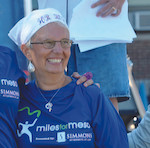

Mary Jane Williams
- Diagnosis: Peritoneal mesothelioma
- Year of Diagnosis: 2003
- Treatment: Surgery, chemotherapy, and radiation
Mary Jane Williams was diagnosed with peritoneal mesothelioma in 2003 after doctors discovered the cancer after gallbladder surgery. She visited three mesothelioma specialists before choosing to travel to New York for treatment.
Mary Jane bravely underwent two major surgeries, chemotherapy, and radiation therapy over a series of 43 trips between her home in Ohio and New York. She also served as a mentor for other patients, accompanying them to the hospital to offer emotional support.
An advocate until the very end, Mary Jane survived mesothelioma for 15 years before passing away from Alzheimer’s disease in 2018.
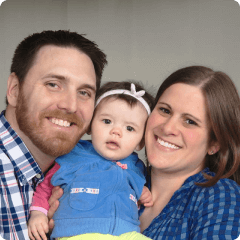

Mike Matmuller
- Diagnosis: Pleural mesothelioma
- Year of Diagnosis: 2011
- Treatment: Surgery and chemotherapy
When Mike Matmuller was diagnosed with pleural mesothelioma at just 29 years old, doctors told him he had less than a year to live. However, after surgery and four rounds of chemotherapy, Mike was declared cancer-free.
After his treatments, Mike and his wife had a baby girl in 2016. Mike’s daughter motivated him to dedicate his life to advocating for more research funding to find a cure for mesothelioma.
Mike lost his courageous battle with mesothelioma in 2020. Today, he is remembered for his legacy of fierce advocacy for mesothelioma victims.


Walter Twidwell
- Diagnosis: Pleural mesothelioma
- Year of Diagnosis: 2017
- Treatment: Palliative care
Walter Twidwell was a U.S. Navy veteran who developed mesothelioma many decades after serving in the Korean and Vietnam wars.
His work as a boiler tender and fireman on several U.S. Navy ships put him into direct contact with gaskets that contained asbestos. He was diagnosed with pleural mesothelioma in his right lung and instructed by his doctor to make sure his end-of-life plans were in order.
The grim news only strengthened his resolve. He filed a mesothelioma lawsuit against Goodyear, the company that manufactured the asbestos gaskets, and a jury awarded him $40 million.
Although he declined standard treatments, Walter lived over 2 years with mesothelioma before he passed away in 2019.
Get Help Becoming a Mesothelioma Survivor
The Mesothelioma Hope team will do everything we can to help you become a survivor. No one deserves to go through this alone.
Our compassionate Patient Advocates can:
- Help you get a second opinion or confirm your diagnosis
- Connect you with top doctors and cancer centers
- Pursue compensation to help you pay for medical treatments
- Recommend support groups and peer mentor programs
Call (866) 608-8933 or request our Free Survivors Guide to get started.
Nontraditional and alternative treatments should only be pursued under the supervision and guidance of your specialist.
Surviving Mesothelioma FAQs
Are there any survivors of mesothelioma?
Yes. Even though mesothelioma is a rare and serious cancer, many people have beaten the odds with early diagnosis, specialized care, and a strong support system.
The mesothelioma survivors we’ve helped stress the importance of finding the right doctors, being open-minded to various treatment options, and staying positive.
Everyone’s situation is different, but many patients have lived longer than expected.
Who is the longest-living mesothelioma survivor?
The longest mesothelioma survivor was Paul Kraus, who fought this cancer for over 27 years. His doctors initially said he only had 6 months to live.
Another survivor, Ellen Patton, was diagnosed with pleural mesothelioma at the age of 41 and is still enjoying life over 24 years later.
Are there any peritoneal mesothelioma survivors?
Yes. Many people diagnosed with peritoneal mesothelioma have lived 10 years or more.
For example, Alexis Kidd was diagnosed in 2007 and is still alive and well today.
Mesothelioma victim Jessica Blackford-Cleeton received her diagnosis in 2015 and is enjoying life with her husband and two young sons.
Treatments like cytoreductive surgery with HIPEC could potentially help you become one of these long-term mesothelioma survivors. Give our team a call at (866) 608-8933 to get in touch with local mesothelioma specialists and learn about your treatment options.
Are there any pleural mesothelioma survivors?
Yes. Pleural mesothelioma survivors include patients like John Stahl, who was diagnosed with stage 4 pleural mesothelioma in 2019, and John Panza, who was diagnosed in 2012. Both of them received specialized treatment and are still living their lives to the fullest today.
Extrapleural pneumonectomy (EPP) or pleurectomy with decortication (P/D) surgery, chemotherapy, immunotherapy, and radiation therapy can help pleural mesothelioma patients become long-term survivors.
Is mesothelioma 100% fatal?
No, mesothelioma is not an automatic death sentence.
Researchers continue to develop more effective ways to diagnose and treat mesothelioma. Thanks to these efforts, some patients have survived for 10+ years without their cancer coming back.
If you’ve been diagnosed with mesothelioma, working with a specialist is the key to extending your life expectancy and becoming a survivor. Contact our Patient Advocates to get connected with top mesothelioma doctors near you.
Has anyone ever beat mesothelioma?
Yes, there are cases of patients achieving remission or living for many years beyond their initial mesothelioma prognosis.
For example, mesothelioma survivor Mary Jane Williams was cancer-free for 14 years before passing away from Alzheimer’s complications.

